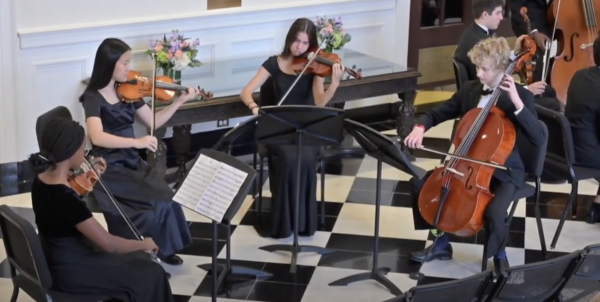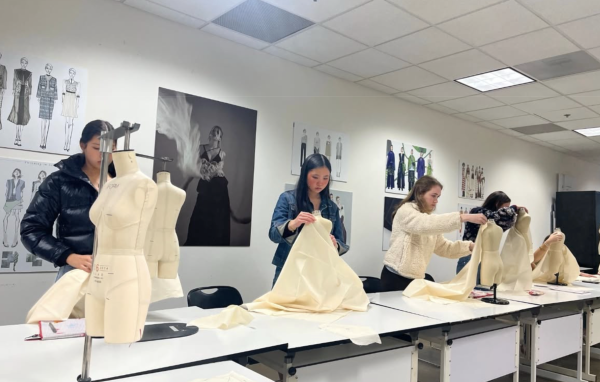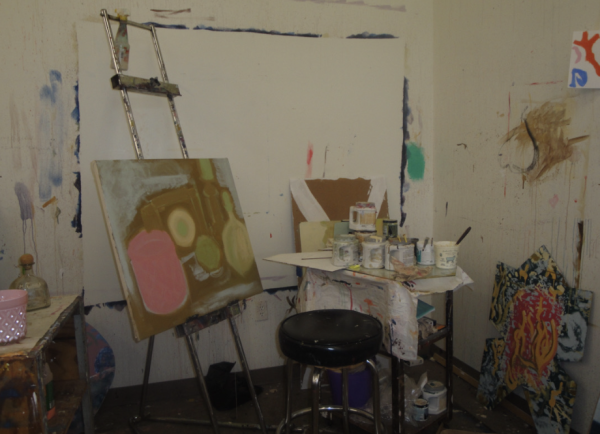Westminster’s new video projects continue tradition of Messiah
As Christmas approaches, Westminster continues the tradition of Messiah, as well as find ways to improve the show. The original large-scale musical work was composed by George Frideric Handel with the intention to recognize Jesus’ resurrection on Easter Sunday, though the piece is most commonly played around Christmas.
During the writing of the Messiah, Handel’s colleague Charles Jennes used Old Testament scriptures prophesying the coming Messiah, New Testament readings on the birth of Christ’s life, and verses pulled from the book of Revelation concerning Judgement Day.
A tradition started by Frank Boggs, the first choral director at the Westminster Schools, this performance has been put on by the chorus, band, and orchestra students since the founding of the school. The piece is best described as an opera that is not staged and consists of eighteen movements of the original work, including six choral movements and one orchestral movement. A number of chorus students correctly identified it as an oratorio: a large-scale musical work, typically a narrative on a religious theme. In fact, Messiah is currently the most frequently performed oratorio of all time.
“It’s like a play, but with music that describes something happening”, said freshman choral student Alex Latz. Its use of music helps narrate the religious background. As one could imagine, the length and musical scale of Messiah requires students to prepare a number of months before the show. Students participating in performing arts are even required to spend an extra 40 minutes to work on the piece during a period called Pear Leadership ARTS, also known as PLARTS, every Monday or Tuesday, depending on their grade.
“We have rehearsals on Monday nights where we come and work as a whole chorus together,” said freshman choral student Annie Jardina. “There are nine songs that we have to learn and we just go through them. The freshmen kinda just have to pick up on it from the 10th, 11th, and 12th graders; we don’t exactly learn it, we just have to listen to them and sing what they sing.” Being their first year participating in Messiah, freshmen performing arts students rely on upperclassmen when learning the songs.
“The work is a big deal, it’s a really hard piece of music for [even] professional groups to pull off,” said choral director Dr. Chris Walters. “So just the fact that we mount it every year is kind of a big deal.” As a means of celebrating this annual tradition, elements of Messiah from previous years will be carried over. Alumni are invited back every year to sing in the chorus or play in the orchestra, and faculty and staff are also encouraged to participate by singing, whether on stage or simply singing along with students in the audience. Friends and family are also welcome to join in.
However, both students and teachers agreed that certain aspects of the preparation process such as faulty communication between the electives served as roadblocks in perfecting the show. In an attempt to solve this issue, several performing arts faculty members worked to critique the show, their plan consisting of two “phases.” They wrote a grant with the intention of “revamping” this year’s show, purchased new materials and props, and made necessary changes to the performing arts department’s curriculum.
“We received new editions and sheet music of Messiah, which basically means that, while we play the same repertoire, everything was revamped to promote a cohesion and closer tie across the chorus and the orchestra,” said band student junior Kevin Chen. “Before, the chorus and orchestra were working on old music with confusing instructions. Now, the chorus and orchestra have received new music and are now completely on the same page with clear instructions and greater cohesion.” Secondly, they added one major change to the curriculum, a video project which would be distributed among the upper school body through advisement.
Performing arts students from each grade level were provided with the task of answering different questions directly corresponding to their respective historical or religious classes. For example, freshmen explained the show’s relation to the Old Testament, while juniors focused on its tie to events in European history. Questions were not limited to the historical background of the play; students also touched on the play’s history within the Westminster Schools, as well as its musical aspect.
The purpose of this assignment is to provide a better understanding of the show’s background for the greater Westminster community, with upper school students specifically in mind. These videos also brought awareness to geopolitical influences as a way to provide information on lesser known aspects of the play, as well as basic context so the students are able to follow along with the setting. As a successful composer in the Baroque period, Handel’s independent style contrasted that of Johann Sebastian Bach. Students focused on the life of English composer George Frederic Handel, important events that occurred during his lifetime and the piece’s relation to his birthplace, Germany.
The video projects were not just for the sake of submitting an assignment; teachers designed the project as a means to motivate the students into making the video with the best quality and concise information. In order to accomplish this, performing arts directors decided to turn the assignment into a competition. To ensure that each upper school advisement was provided with the best possible explanation on the show they will be preparing to watch, the top two videos submitted from each grade out of band, chorus, and orchestra will be selected and sent to them. This year’s Messiah will consist of two performances; one during the upper school service on Friday, December 21, and a second showing later that night.



